Meet Gen Z

HOW TO LEAD THE NEWEST GENERATION OF WORKERS
FOR YEARS, THE SEEMINGLY ENDLESS CHATTER ABOUT MILLENNIALS, HOW TO MANAGE THEM, AND WHICH INDUSTRIES THEY WERE BUSY KILLING THREATENED TO NEVER CEASE.
You couldn’t throw a rock on the internet without hitting a hot take or think piece on the generation famously called “The Me Me Me Generation” by Joel Stein in his 2013 piece for Time magazine.
But now, at long last, a new generation is making its way out of the classroom and into the boardrooms, cubicles, and coworking spaces that comprise the modern workplace. Born between roughly 1997 and 2012, the oldest members of Generation Z are beginning to or have already walked across the commencement stage or begun laying the foundations of their careers. This means the workplace dynamic will necessarily begin to shift as Generation X and even Millennials become management and the Baby Boomers begin to retire. Are you ready to welcome Generation Z? Learn everything you need to know about how to lead gen Z.

Gen Z at a glance: a few key figures to remember
60 million – The estimated number of members of Generation Z in the American population as of 2017, according to Pew, including the youngest members, who are still in primary school.
48% – The percentage of the Gen Z population that isn’t Caucasian, making them the last generation with a white majority and the most diverse population to date.
10 – the age the oldest members of Gen Z was when the iPhone was released, making a very large portion of this generation true digital natives: most of them have never known a world without WiFi, smartphones or ‘the internet of things’.
59 percent – the share of 18 to 20-year-olds enrolled in college in 2017, the highest percentage of any generation so far.
The Gen Z identity is more of an anti-identity. As a group they eschew labels and embrace autonomy and individual expression. They’re more likely to be socially and politically liberal and less likely to say that their gender, sexual orientation or race are key components of their identity. In fact, a Trendera report has the highest majority – a full 67 percent -of Gen Zs saying that when it comes to who they are, their chosen career is or will be the most important factor in their identity.
That means that for employers looking to learn how to lead, attract, train and retain entry-level Gen Z talent, the stakes are even higher than usual.
How to lead Gen Z at work
The oldest members of the post-millennial generation are in the earliest stages of their career development. They watched the generation just ahead of them struggle through one of the nation’s toughest recessions while being hobbled by astronomical student loan debt.
They witnessed the recovery of the job market and rise of the gig economy. They may not have felt the repercussions of the nation’s changing working landscape first hand, but they’ve certainly learned from it. This generation is described as pragmatic and resilient, but optimistic about their futures, with some reports finding that members of Gen Z were, on average, just 13 when they began developing their financial planning skills.
They’re also more likely to have entrepreneurial aspirations: 72 percent of high schoolers surveyed by one firm said they’d rather have their own business than be an employee, which is right in line with Trendera’s finding that the same percentage of their own respondent pool described themselves as “ambitious”.
Though most Gen Zs won’t want to work for someone else forever, they see the acquisition of new skills — not a series of job changes – as the most effective path up the career ladder, which sets them apart from Millennial job seekers during the most turbulent post-recession years.
FINDING AND HIRING THE NEWEST GENERATION OF WORKERS

How to attract Gen Z candidates
If Gen Z considers their chosen careers to be identity making, then it should not surprise you that you’ll have to offer more than a healthy salary to recruit and keep them. In fact, a report by RippleMatch found that, as a group, compensation was almost the least important factor in deciding whether or not to take or stay in a job. Instead, professional development, upward mobility, and a sense of community were key components.
More than one body of research bears this out. Opportunities to continue to learn and grow professionally are consistently cited as much, much more important than a company’s compensation package. Also gone are the post-recession days where entry-level hires were expected to be grateful just to even be employed. Don’t rely on your company’s name, prestige, or brand visibility to draw starry-eyed new graduates either.
Gen Z is notoriously distrustful of brands and that goes for the brands they work for as well as the ones they buy from. Here’s how to stand out.
Recruit Gen Z by meeting them where they live
As digital natives, meeting Gen Z where they live means meeting them online. Specifically, it will require leveraging social media as a sourcing and recruiting tool. Be aware, however, that there’s a balance to strike: an unsolicited message on Instagram, Facebook, or Snapchat is as likely to be ignored as it is to be written off as clueless.
It’s fine to use visual and video mediums to draw attention to open opportunities on any of those platforms but allow candidates to come to you by providing a link to an application portal in the post’s description.
This is where mobile recruitment comes in. If you are learning how to lead Gen Z, you must know that they expect technology to work, and for it to work well. They do almost everything from their smartphones, and that includes looking for and applying to jobs.
Apps like LinkedIn Recruiter, Rakuna, Shapr and Workable are easy, quick, and intuitive. Using them to reach your Gen Z applicant pool can yield much better results than having candidates email you a CV or cover letter, or worse, slog through a dated portal that makes them input all of their resume information in page after page of forms before making them upload the resume anyway.
If you do need to use an applicant portal, test it for speed and mobile responsiveness and make it as streamlined as possible.
Consider using video conferencing for early stage interviews, as well. All of these strategies signal to your applicants that you’re respectful of their time, technologically forward-thinking, and willing to meet them where they already are – all of which are important to Gen Z.
Be transparent, authentic, and empathetic
Gen Z job seekers have consistently considered the social impact and diversity as important qualities in an employer. This means there can be no more lip service to diversity and inclusion initiatives – expect candidates to ask you precise, objective questions about how you’ve implemented those initiatives and what your company does to create positive social change.
92 percent of Gen Z respondents said that social and environmental issues are important to them overall, with 89 percent reporting that they were concerned about the health of the climate. 37 percent said they volunteered their time to causes that were important to them. This attitude influences what companies Gen Z will buy from as a consumer, and you can bet it will carry over to what companies they will work for as an employee.
How to lead Gen Z tip: Lip service won’t be enough – Generation Z, perhaps more than any other generation, doesn’t respond to traditional marketing campaigns, and unlike their Millennial big brothers and sisters, they’re wary of nontraditional methods including influencer campaigns on platforms like Instagram. They can tell when they are being pandered to, so sincerity is key.
To attract Gen Z workers, emphasize your company’s social, environmental and philanthropic initiatives, but be careful not to use them as an overwrought branding tool. Gen Z doesn’t see these things as a nice-to-have extras, they see them as something you should be doing anyway.
Everyone benefits when corporations care: besides attracting Gen Z talent, research shows that up being inclusive and doing good is good for your bottom line, as well:
Companies in the top quartile for ethnic and racial diversity were 35% more likely to have financial returns above their industry’s mean.
The less homogenous a company’s leadership is, the more likely they are to develop innovative products.
Companies with corporate volunteerism initiatives – especially the ones doing pro bono work or community service – experienced lower turnover and higher productivity rates.
MANAGING GEN Z IN THE WORKPLACE

Embrace and implement new technologies
Technology isn’t just important to your average Gen Z in day-to-day life, it’s imperative. The companies Gen Z most wants to work for include aren’t just exclusively tech companies, they are the tech companies that provide the products and services Gen Z consumes daily. The yearly top ten list of dream companies includes the roster of FAANG, of course, but Uber, Airbnb, and Snap all make an appearance, too.
They expect their employers to facilitate an environment that allows them to work as they live: with instant, robust access to communication, information, and peers. Connectivity is key, and that connectivity should function across multiple channels and include multiple mediums.
Tools like Slack, Trello, and even Discord are great standalone channels for communication and collaboration, but a number of tools that allow for multitasking and covers every style and method of communication exist.
Microsoft Teams is all-in-one, multichannel, and collaborative and will be comfortable territory for anyone used to MS Office Suite. Salesforce recently rolled out Chatter for team collaboration and Simpplr for communication between HR and employees, and both integrate seamlessly with their CRM.
Even Facebook recently rolled out Workplace, which makes tech-driven collaboration as easy as, well, checking Facebook.
All of these options don’t require that you torch your existing systems and then salt the ashes; traditional communication channels like email can often be used in conjunction with newer technologies, and most of the tools on this list roll them right in.
Leverage the Gen Z DIY mindset
YouTube is by far the most popular platform for members of Gen Z, and one of the reasons why may surprise you. Gen Z is far more independent than their Millennial counterparts and tend to go looking for answers and instructions on their own if they need them. Gen Z also values brands that empower people to share their passions and expertise, whether those things lie in video gaming or refrigerator repair.
For employers, this means you can expect a refreshing degree of autonomy and a distinct lack of handholding as you onboard your entry-level hires. However, all workplaces require some degree of cooperation and interdependence, whether in teams or across departments.
As a manager learning how to lead Gen Z, you will be glad to hear that they are expert multitaskers and allowing them as employees to showcase their skills will keep them connected to their team, giving them the sense of community they crave and provide them with the variety they’re used to.
As your company rolls out new technology, for instance, you may find that your new Gen Z hire is the perfect person to host a lunch and learn for employees that are unfamiliar with the newest piece of shiny software.
Similarly, having them contribute to an internal wiki or knowledge base gives them the opportunity to showcase what they know about your company or their role. As an added bonus, any Gen Z new hires that come on board later will thrive in an environment that allows them to flex their autodidactic muscles.
Provide a clear upward – or even lateral – career path
Gen Z covets two things above all in their career. Over and over again, professional development opportunities and upward mobility topped the list of what they want from the workplace. They want to know that if they work hard, and learn new skills, they’ll advance. They also want to see how that will happen.
This is a generation that witnessed the vague directive of “Go to college and everything will work out” collapse around the debt-burdened Millennials. They don’t want bumper sticker platitudes or open-ended motivational poster career advice. What they want is transparent, actionable steps forward.
Career mapping, one-on-one goal setting, and regular feedback are key when it comes to managing Gen Z. They’re willing to pay their dues, but not for its own sake.
This is a generation of ambitious planners with an entrepreneurial streak that came or is coming of age in an era where all things are gamified, and every action has an immediate, tangible result.
This isn’t to say Gen Z workers are entitled – they expect to have to work hard for to advance– but if they sense that they’re going through the motions blindly or being strung along they’ll move on.
Surprisingly enough, upward mobility doesn’t necessarily mean more money, a better title, or a swank office to Gen Zs. They’re as likely to value growth opportunities that take them across the company as well. Maybe your newest programmer has a nascent gift for writing copy. Perhaps your Gen Z sales representative has always wanted to give administrative operations a try.
An important aspect to remember if you want to learn how to lead Gen Z , is that they’re used to having access to information. If they want to learn something, they’ll go ahead and learn it. If they discover strengths in a different field and want to develop those strengths, they’ll want to know that they won’t need to choose between jumping ship and passing up an opportunity to grow. Employers who recognize that being good at something doesn’t mean being good at one thing will miss the opportunity to source talent from right under their own noses.
Moreover, as the generation most attuned to the rapid pace of technological advancement, they’re well aware that machine learning, AI, and automation all mean that there’s no such thing as a guaranteed lifelong career. They’re ready and excited to adapt and evolve alongside the tech that is so integral to their identity.
Providing cross-training, skills development, or even just investing in a team license for learning tools like Lynda or Pluralsight will keep Gen Z engaged and provide your company with resources that evolve in tandem with your industry and the technological landscape.

How to lead Gen Z Key takeaways
Do your research
Do you know what Gen Z thinks of your company or brand? Now is the time to find out. Gather insights not just on how an employee from this age group perceives you, but how a consumer from this age group does. Gen Z isn’t likely to work for you if they don’t want to buy from you.
Go mobile
If you want to reach Gen Z, you need to take your recruiting, onboarding, and operations into the cloud and make sure these resources are mobile-responsive. If Gen Z is going to find you, apply for a position with you, and work with you, they’ll be doing it from their phones.
Don’t sloganize social impact
If you’re learning how to lead Gen Z, you must know that they care about what you say you’ll do for your community. They care about what you’re actually doing. Skip the slogans, boasting, and glossy diversity initiative brochures and have authentic, honest conversations online and in the interview room about your company’s values.
Success is not the same as salary
While Gen Z expects to be paid fairly, they’re aware that the value of professional development and upward mobility strategy is greater in the long run and will choose a company that invests in them, even if that company isn’t offering the most money.
Gen Z knows their worth
The pool of Gen Z candidates will be the most diverse in history, and on the whole, they’re better educated than their older siblings or parents. They will be tech-savvy and self-starting and will stick with the right company for longer under the right circumstances. They’re graduating into a strong economy and can afford to be picky.
Get the complete eBook.
WITH PERSONIV PERFORMING YOUR BUSINESS PROCESSES
YOU CAN ENJOY IMMEDIATE RESULTS PREPARED ON-DEMAND AT A PRICE POINT THAT TRADITIONAL OUTSOURCING CANNOT MATCH.




